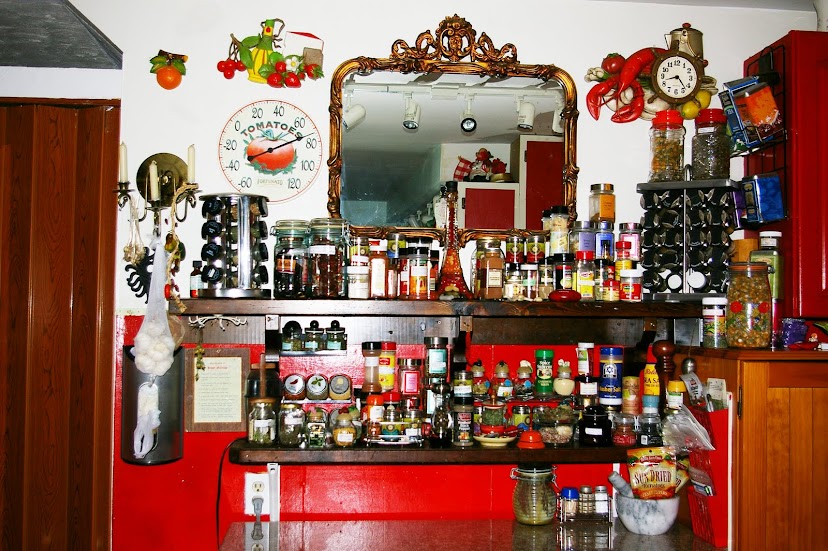Did you know that iron deficiency anemia is the most common nutritional disease in the world?
Anemia literally means, "without blood", and is a deficiency of red blood cells, or the presence of abnormal red blood cells due either to reduced production, abnormal production, excess destruction, or blood loss.
Symptoms of Anemia
Tiredness, dizziness, headaches, depression, slow healing, loss of sex drive, bruising, nervousness, shortness of breath, pallor and palpitation.
Main Causes of Anemia:
Seek Professional Help When...
This range from simple dietary changes and vitamin supplements to hormone treatments. Surgery may be indicated in severe cases.
Common Sense Care of Anemia:
Asian ginseng (Panax ginseng) is useful as a general tonic to counteract anemia induced fatigue. Dong quai may be prescribed for women with heavy menstrual flow. For anemic patients with yellow complexion, a Chinese herbalist might recommend a combination of dong quai and Chinese foxglove root. For those with white complexion, they may recommend a combination of ginseng and astragalus.
Disclaimer - The herbal information on this web site is intended for educational purposes only. It is not the intention of the editor to advise on health care. Please see a medical professional about any health concerns you have. Disclaimer - These statements have not been evaluated by the FDA. The information on this web site is not intended to prevent, diagnose, treat, or cure any disease.
Anemia literally means, "without blood", and is a deficiency of red blood cells, or the presence of abnormal red blood cells due either to reduced production, abnormal production, excess destruction, or blood loss.
Symptoms of Anemia
Tiredness, dizziness, headaches, depression, slow healing, loss of sex drive, bruising, nervousness, shortness of breath, pallor and palpitation.
Main Causes of Anemia:
- Iron deficiency
- Vitamin B-12 or folic acid deficiency
- Vitamin C deficiency
- Vitamin E and B-6 deficiency
- Thyroid disorders
- Alcoholism
- Lead Toxicity
- Infectious diseases such as malaria
- Your skin is pale and you feel weak, tired and out of breath.
- Your tongue is slick or smooth.
- You experience fatigue upon exertion.
- Your skin is jaundiced.
- You have bleeding under your skin and you bruise in response to the slightest trauma.
- You are unable to do your usual physical activities.
- You feel tired for more than five days.
This range from simple dietary changes and vitamin supplements to hormone treatments. Surgery may be indicated in severe cases.
Common Sense Care of Anemia:
- Include the foods recommended under Food Therapy in your diet. The specific choice of food will be dictated by the type of anemia you have.
- Keep track of the foods you eat and find out whether they are rich in iron, folic acid, or vitamin B-12.
- As mentioned else where, do not drink coffee, tea, beer or cola with meals as these inhibits the absorption of iron. Instead, drink citrus juices. These are rich in Vitamin C and assists in the absorption of iron.
- Take daily multivitamin. Do not take any iron supplements without consulting your doctor.
- Avoid excessive consumption of alcohol.
- If you are a strict vegetarian, watch your diet very closely.
- Do not smoke. Avoid second hand smoke.
- Minimize your exposure to lead and other toxic metals such as aluminum, cadmium and mercury.
- Dong quai - This herb is rich in vitamins and minerals.
- Chive - This vegetable is rich in vitamin C and iron - eat fresh chives.
- Quinoa - This is a grain rich in all eight essential amino acids that form a complete protein.
- Gentian - The bitter herb gentian is popular in England for the treatment of anemia. Gentian can be brewed into a tea or you can take a commercially available extract.
- Dandelion is also believed to help people with anemia. It is very rich in vitamins and minerals.
- Other herbs that are of interest to those suffering from anemia include alfalfa, bilberry, burdock root, cherry, goldenseal, grape skins, hawthorn berry, horsetail, mullein, parsley, nettle, Oregon grape root, pau d'arco, red raspberry, shepherd's purse, watercress, and yellow dock root.
Asian ginseng (Panax ginseng) is useful as a general tonic to counteract anemia induced fatigue. Dong quai may be prescribed for women with heavy menstrual flow. For anemic patients with yellow complexion, a Chinese herbalist might recommend a combination of dong quai and Chinese foxglove root. For those with white complexion, they may recommend a combination of ginseng and astragalus.
God Bless!
Simone :)
Copyright@SimoneBonda Disclaimer - The herbal information on this web site is intended for educational purposes only. It is not the intention of the editor to advise on health care. Please see a medical professional about any health concerns you have. Disclaimer - These statements have not been evaluated by the FDA. The information on this web site is not intended to prevent, diagnose, treat, or cure any disease.

No comments:
Post a Comment